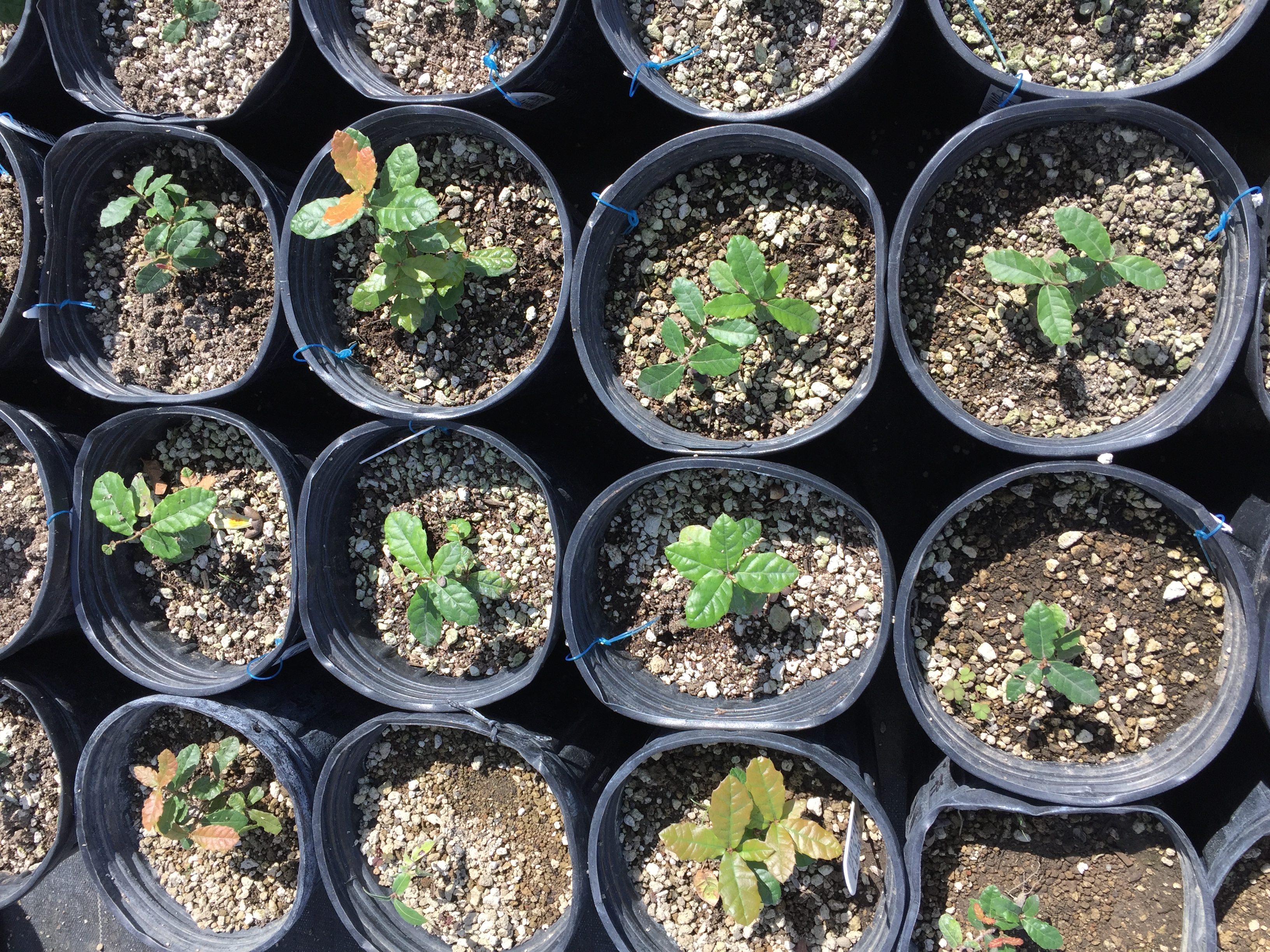The Red List and Gap Analysis of Oaks
The Red List of Oaks
The Red List of Oaks (2007) assessed 208 of the 500 oak (Quercus) species found worldwide. This report identified 78 wild oaks in danger of extinction and raised concern over the lack of data for over 300 species. Oaks are under threat in the wild from general forest loss and over-exploitation of particular species.
The Red List of US Oaks
The Red List of US Oaks (2017) details for the first time the distributions, population trends, and threats facing all 91 native oak species in the U.S., including updated versions of previously published assessments. Sixteen species were assessed as threatened and are clear priorities for conservation action. California contains the highest number of oak species of conservation concern (nine species). Some of the major threats to oak species in the US include both native and non-native pests and diseases, climate change, urban development, and agricultural expansion.
Conservation Gap Analysis of Native US Oaks
The Morton Arboretum conducted a comprehensive analysis of the conservation accomplishments and most urgent needs for in situ and ex situ conservation of oak species in the United States. This analysis was conducted in partnership with Botanic Gardens Conservation International U.S., the USDA Forest Service, Fauna & Flora International, and the Global Trees Campaign.

Associated resources
-
The Red List of Oaks
Conservation Prioritisation, Tree Conservation / Publication / English -
The Red List of US Oaks
Conservation Prioritisation, Tree Conservation / Publication / English -
2019 Conservation Gap Analysis of Native US Oaks
Tree Conservation / Publication / English
Share
Support BGCI
You can support our plant conservation efforts by sponsoring membership for small botanic gardens, contributing to the Global Botanic Garden Fund, and more!
Become a Member
Be part of the largest network of botanic gardens and plant conservation experts in the world by joining BGCI today!





